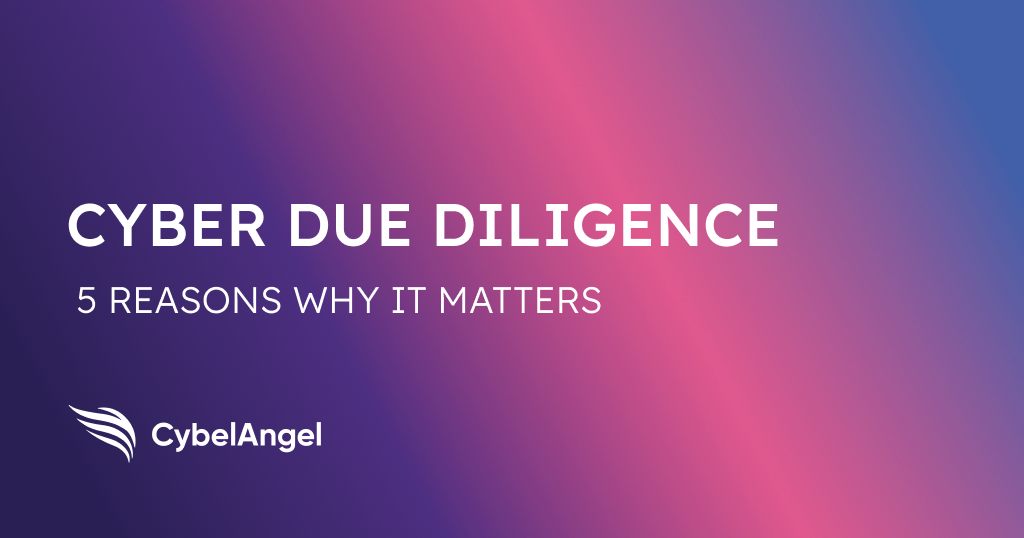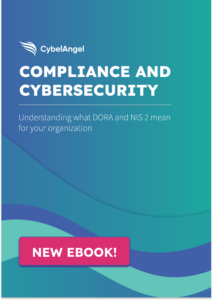What is Cyber Due Diligence? 5 Reasons Why it Matters

Table of contents
Cyber due diligence (DD) involves assessing an organization’s digital infrastructure to identify any vulnerabilities. And with cyber threats on the rise, it’s more of a priority than ever.
Cyber attacks are becoming more sophisticated, impactful, and difficult to contain. In fact, the Harvard Business Review has reported a 20% spike in data breaches in the past year alone.
Any company that wants to avoid being a cybercrime victim should make cybersecurity due diligence its top focus for 2024. In this guide, you’ll learn what cyber due diligence is, and unpack 5 case studies where it’s most important.
What is cyber due diligence?
Cyber due diligence involves conducting a comprehensive risk assessment of a company’s online systems, including third-party risks. The goal is to establish its overall “risk profile”, and adapt accordingly.
To look at it another way, it’s the same as checking a house for any issues before you purchase it. Cyber due diligence is all about checking a company’s digital infrastructure before making any big decisions—such as whether to invest, purchase, or merge with it, for example.
There are 5 reasons why cyber due diligence is so essential.
- It is a vital part of mergers and acquisitions (M&A).
- It can help to prevent infiltrated services.
- Dark web monitoring can help stakeholders to stay one step ahead.
- It reduces and mitigates ransomware risks.
- It contributes to a strong EPSS score.
Let’s break down these 5 elements in more detail.
1. Cyber due diligence and M&A cybersecurity
Mergers and acquisitions (M&A) are when ownership of a company is transferred or blended with another. And cyber due diligence has a crucial role to play in this.
It evaluates a company’s cybersecurity posture before these M&A transactions happen, making it an essential part of any merger and acquisition security checklist.
So what does mergers and acquisitions cybersecurity involve?
Generally, it’s a case of exploring the organization’s current cybersecurity policies, data privacy guidelines, incident response plans, regulatory compliance, and any past security incidents. Assessments can also review supply chain and third-party vendors’ security measures.
This security due diligence process means that:
- Thanks to vulnerability assessments, stakeholders understand the acquisition target company’s strengths and weaknesses
- Acquirers and private equity firms can make informed decisions, based on the potential risks and required cybersecurity practices
- It can inform the valuation of a company, including its reputational profile and business continuity
Ultimately, understanding a company’s M&A cybersecurity risks is vital for any business transaction and safeguards investments for the future.
Cyber M&A: Moving forward
If you’re thinking about cybersecurity M&A measures, you don’t have to go it alone. CybelAngel offers an M&A Cyber Due Diligence service to accompany you every step of the way.
With an assessment from a team of cybersecurity experts, you can discover any exposed intellectual property, and any cyber risks that could impact valuation, and then benchmark these risks against similar organizations.
2. Infiltrated services: How cyber due diligence can help
An infiltrated server is when unauthorized people get access to sensitive data, or use the digital ecosystem as a “gateway” to launch cyber attacks.
Servers can be infiltrated due to:
- Weak passwords: When passwords are easy to guess or decipher
- Phishing attacks: When people are tricked into sharing sensitive information
- Software vulnerabilities: When cybercriminals can get past weak controls in the system
Infiltrated servers can cause severe reputational damage to companies. They could seriously compromise data protection and GDPR, be used to host malicious software or facilitate distributed denial-of-service (DDoS) attacks.
Cyber due diligence can identify any security controls that have been bypassed—and help companies to mitigate the risks moving forward. It involves monitoring via ‘indicators of compromise’ (IOCs) and any strange network behaviors.
Implementing data breach prevention
If you want to protect your information security systems, then CybelAngel’s Data Breach Prevention software is here to help.
It will scan your connected devices, cloud storage, databases and more to identify any threats—and then assist with any remediation that is required, making it an essential part of any cybersecurity due diligence checklist.
3. How dark web monitoring supports due diligence cybersecurity
The dark web is a closed online community where cybercriminals operate. For example, they use it to buy and sell sensitive data, to purchase malware, and to discuss the best attack techniques.
By monitoring the dark web, companies and security teams can stay ahead of the latest risks and better anticipate any cyber threats. This makes dark web monitoring an essential aspect of cyber due diligence security.
With the right information from the dark web, any business can improve its risk management, improve its incident response plans, and become more resilient against cybercrime.
How to monitor the dark web to boost cyber diligence
If you’re ready to start keeping an eye on the dark web, you can use CybelAngel’s Dark Web Monitoring tool. It lets you follow cybercriminal conversations and messaging panels on the dark web, so that you are aware of any cybersecurity risks for your business.
Plus, you’ll be supported by CybelAngel’s Cyber Threats and security team, so you’ll have personalized guidance through the whole process.
4. Pushing back against ransomware risks
A ransomware attack is when someone’s data and/ or online systems are blocked by cybercriminals until they pay a “ransom”. For example, attackers might use phishing emails, supply chain attacks, or scams to get access to an organization’s ecosystem and then block it.
CybelAngel’s 2024 EASM report found that ransom demands increased by 40% in the past year alone, while unprotected assets have also doubled—meaning that the ransomware risk is higher than ever. Construction, IT, and healthcare are the biggest targets, but no one is immune.
The financial cost of a ransomware attack can easily reach the millions. (Ironically, investing in cybersecurity services would cost less than 8% of these recovery costs.)
Every cybersecurity due diligence assessment should include an evaluation of ransomware risks. To do otherwise is to risk severe financial damage and loss of intellectual property later down the line.
Due care cybersecurity to protect against ransomware
CybelAngel offers several services to boost your cybersecurity checklist. This includes:
- Account Takeover Prevention, to stop your credentials being stolen on the dark web.
- Remediation to reduce your time-to-containment by 85%, in the event of a ransomware attack.
- An Expert REACT team of cybersecurity experts to assist with Special Threat Investigations and identify any data exposure.
5. The role of EPSS scores in cyber due diligence
EPSS stands for ‘Enterprise Security Posture Score’, and it’s used to calculate a company’s cybersecurity posture. The higher the EPSS score, the more robust the organization’s security measures are.
An EPSS score can be a helpful aspect of cyber due diligence because it quantifies their overall cyber resilience.
It is calculated based on:
- Implementation of security controls
- Incident response capabilities
- Risk management posture
- Adherence to industry best practices
Having an EPSS score in DD cybersecurity creates a benchmark and a point of comparison with competitors and wider industry standards. And, by tracking the score over time, businesses can aim to improve it.
CybelAngel: A solution to support your EPSS score
If you’re aiming for a high EPSS score, you want to invest in cybersecurity services that support EPSS in their products.
CybelAngel is listed as a recognized software that supports EPSS and meets international compliance standards, meaning that you can be confident you’re taking the best steps towards improving your score.
Bonus: A cybersecurity due diligence questionnaire
If you’re new to cyber due diligence, here’s a quick questionnaire to help you get a general overview of any company’s cybersecurity posture.
- Cybersecurity practices: What are the organization’s documented cybersecurity policies? How often are these updated, in light of new technologies and evolving cyber threats?
- Data protection: How does the company protect its sensitive data? Are there encryption protocols in place to safeguard online databases?
- Employee awareness: Do employees have access to cybersecurity training? Do they understand how to recognize threats such as phishing scams or malware?
- Network security: How is the company working to prevent unauthorized entry? What firewalls, antivirus and detection systems are in place?
- Regulatory and legal compliance: Does the company follow current industry standards and legislation, such as GDPR, HIPAA, PCI DSS, and the NIST cybersecurity framework?
- Third-party risk management: How are third-party vendors reviewed before engaging their services? How are their own cybersecurity risks managed to ensure they don’t compromise the wider supply chain?
Conclusion: DD in cybersecurity
Any due diligence security group should have a particular focus on cybersecurity. Cyber attacks are showing no signs of slowing down, but with the right information, every organization can safeguard its assets and push back.
From cybersecurity mergers and acquisitions to monitoring the dark web, there are many contexts where cyber due diligence is imperative.
Whatever the situation, by following this questionnaire and investing in reliable services such as CybelAngel, you can tick all the boxes of cybersecurity due diligence and be equipped with the right insights to safeguard your future.
